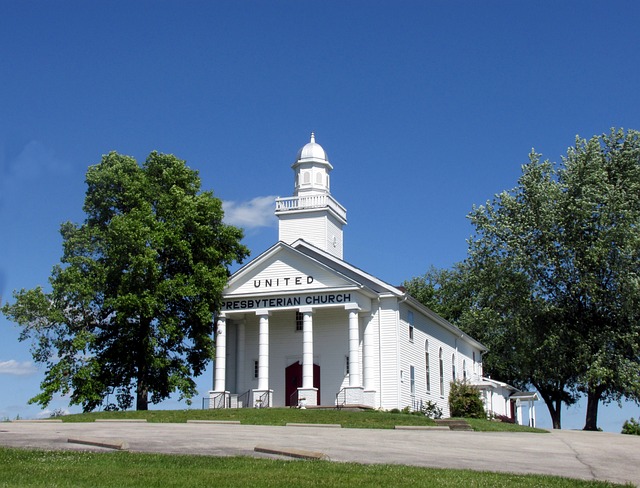Presbyterians are a diverse group of Christians who hold a range of theological and social beliefs. While some Presbyterians may identify as conservative, it is important to note that not all Presbyterians adhere to conservative ideologies. The beliefs and practices of Presbyterians can vary significantly depending on individual interpretations of scripture and the specific denomination or branch of Presbyterianism.
Table of Contents
The History of Conservatism in Presbyterianism
Presbyterianism is a branch of Protestant Christianity that traces its roots back to the 16th century Reformation. With its emphasis on the sovereignty of God and the authority of Scripture, Presbyterianism has often been associated with conservative beliefs and practices. However, it is important to note that not all Presbyterians are conservative, and the denomination has evolved over time.
The history of conservatism in Presbyterianism can be traced back to its origins in Scotland. In the 16th century, John Knox, a Scottish theologian and pastor, played a key role in establishing Presbyterianism as the official religion of Scotland. Knox and his followers were known for their strict adherence to biblical teachings and their resistance to any form of religious or political authority that they deemed to be contrary to God’s Word.
During the 17th century, Presbyterianism spread to other parts of the world, including North America. The Presbyterian Church in America (PCA) was formed in 1973 as a conservative alternative to the more liberal Presbyterian Church (USA). The PCA holds to a more traditional interpretation of Scripture and has been vocal in its opposition to issues such as same-sex marriage and the ordination of LGBTQ+ clergy.
However, it is important to note that not all Presbyterians share these conservative beliefs. The Presbyterian Church (USA), for example, is a more liberal denomination that has taken progressive stances on issues such as LGBTQ+ rights and social justice. The PC(USA) has ordained openly gay and lesbian clergy and has advocated for the inclusion of LGBTQ+ individuals in the life of the church.
In recent years, there has been a growing divide within Presbyterianism between conservatives and liberals. This divide has been fueled by disagreements over issues such as the authority of Scripture, the role of women in the church, and the definition of marriage. Some conservatives argue that the denomination has strayed from its biblical roots and have chosen to leave the PC(USA) in favor of more conservative alternatives.
Despite these divisions, there are many Presbyterians who identify as neither conservative nor liberal. These individuals may hold a variety of beliefs and may be more focused on the core tenets of the faith rather than specific social or political issues. They may value the Presbyterian emphasis on the sovereignty of God and the authority of Scripture while also recognizing the need for grace, love, and inclusivity.
In conclusion, while Presbyterianism has often been associated with conservative beliefs and practices, it is important to recognize that not all Presbyterians are conservative. The denomination has evolved over time, and there is a wide range of beliefs and practices within Presbyterianism. Whether conservative, liberal, or somewhere in between, Presbyterians share a common commitment to the Christian faith and the belief in the sovereignty of God.
Key Beliefs and Practices of Conservative Presbyterians

Presbyterians are a diverse group of Christians who hold a range of beliefs and practices. While some Presbyterians may identify as conservative, it is important to note that not all Presbyterians share the same views. In this article, we will explore the key beliefs and practices of conservative Presbyterians.
One of the central tenets of conservative Presbyterianism is a strong commitment to the authority of the Bible. Conservative Presbyterians believe that the Bible is the inspired word of God and the ultimate source of truth. They view the Bible as infallible and inerrant, meaning that it is without error in its original manuscripts. This belief shapes their understanding of theology and informs their moral and ethical convictions.
Conservative Presbyterians also emphasize the importance of the Westminster Confession of Faith. This historic document, written in the 17th century, outlines the core beliefs of Presbyterianism. Conservative Presbyterians hold to the Westminster Confession as a faithful summary of biblical teaching and use it as a guide for their faith and practice. They see it as a valuable resource for understanding the Bible and interpreting its teachings.
Another key belief of conservative Presbyterians is the doctrine of predestination. This doctrine, rooted in the teachings of John Calvin, holds that God has chosen certain individuals for salvation before the foundation of the world. Conservative Presbyterians believe that God’s choice is not based on anything they have done or will do, but solely on His sovereign will. This belief in predestination shapes their understanding of salvation and their view of God’s sovereignty.
In terms of worship, conservative Presbyterians tend to have a more traditional approach. They value the use of liturgy and hymns in their worship services. The focus is on reverence and awe in the presence of God. The preaching of the Word is central to their worship, and sermons are often given a significant amount of time and attention. Conservative Presbyterians believe that worship should be God-centered and that it should reflect the reverence and holiness of God.
Conservative Presbyterians also place a strong emphasis on the importance of the family. They believe that the family is the foundation of society and that it should be nurtured and protected. They hold to traditional views on marriage and believe that it is a lifelong commitment between one man and one woman. They also emphasize the importance of raising children in the faith and teaching them biblical values and principles.
In conclusion, while not all Presbyterians identify as conservative, those who do hold to a set of key beliefs and practices. These include a strong commitment to the authority of the Bible, the use of the Westminster Confession of Faith as a guide, a belief in predestination, a traditional approach to worship, and an emphasis on the importance of the family. It is important to remember that these beliefs and practices may vary among individual Presbyterians, but they provide a general overview of what it means to be a conservative Presbyterian.
Exploring the Role of Scripture in Conservative Presbyterianism
Are Presbyterians conservative? This is a question that often comes up when discussing the beliefs and practices of this particular Christian denomination. While it is true that Presbyterians hold to certain traditional values and beliefs, it is important to understand the role of scripture in shaping their conservative stance.
Presbyterians, like many other Christian denominations, believe that the Bible is the inspired word of God. They view scripture as the ultimate authority in matters of faith and practice. This means that they look to the Bible for guidance on how to live their lives and make decisions. In this sense, scripture plays a central role in shaping the conservative beliefs of Presbyterians.
One of the key aspects of conservative Presbyterianism is the belief in the inerrancy of scripture. This means that Presbyterians believe that the Bible is without error or contradiction. They see it as a reliable and trustworthy source of truth. This belief in the inerrancy of scripture leads Presbyterians to take a conservative stance on a variety of issues, including social and moral issues.
For example, many Presbyterians hold conservative views on topics such as abortion, same-sex marriage, and gender roles. They believe that the Bible clearly teaches that life begins at conception and that marriage is between one man and one woman. They also believe that the Bible teaches distinct roles for men and women in the family and in the church. These beliefs are rooted in their understanding of scripture as the authoritative word of God.
Another important aspect of conservative Presbyterianism is the belief in the sufficiency of scripture. Presbyterians believe that the Bible contains everything necessary for salvation and for living a godly life. They do not believe that additional revelations or teachings are necessary. This belief in the sufficiency of scripture leads Presbyterians to reject certain practices and beliefs that are not explicitly taught in the Bible.
For example, many Presbyterians do not practice or believe in the use of charismatic gifts, such as speaking in tongues or miraculous healings. They believe that these practices are not supported by scripture and therefore should not be a part of their worship or spiritual life. This emphasis on the sufficiency of scripture helps to shape the conservative beliefs and practices of Presbyterians.
It is important to note that not all Presbyterians hold the same conservative beliefs. There is a range of beliefs and practices within the Presbyterian denomination, just as there is within any other Christian denomination. However, the role of scripture in shaping conservative Presbyterianism cannot be overlooked.
In conclusion, Presbyterians are often seen as conservative due to their beliefs and practices. The role of scripture in shaping their conservative stance is significant. Presbyterians view the Bible as the inspired word of God and the ultimate authority in matters of faith and practice. They believe in the inerrancy and sufficiency of scripture, which leads them to take a conservative stance on a variety of issues. While not all Presbyterians hold the same conservative beliefs, the influence of scripture cannot be denied in shaping the conservative nature of this Christian denomination.
Contemporary Challenges and Debates within Conservative Presbyterianism
Are Presbyterians conservative? This is a question that has sparked much debate and discussion within the Presbyterian community. While it is true that many Presbyterians hold conservative beliefs, it is important to recognize that there is a wide range of perspectives within the denomination. In this article, we will explore some of the contemporary challenges and debates within conservative Presbyterianism.
One of the main challenges facing conservative Presbyterians today is the issue of biblical interpretation. There is a diversity of opinions when it comes to how the Bible should be understood and applied to contemporary issues. Some conservatives take a more literal approach, believing that the Bible should be interpreted exactly as it is written. Others take a more contextual approach, recognizing the need to consider the historical and cultural context in which the biblical texts were written.
This debate over biblical interpretation often spills over into discussions about social issues such as same-sex marriage and gender roles. Some conservative Presbyterians believe that the Bible clearly condemns homosexuality and that marriage should only be between a man and a woman. Others take a more inclusive approach, arguing that the Bible’s teachings on love and acceptance should be applied to all individuals, regardless of their sexual orientation.
Another challenge within conservative Presbyterianism is the tension between tradition and innovation. Many conservatives value the rich history and traditions of the Presbyterian Church, and are hesitant to embrace change. However, there are also those who believe that the church needs to adapt and evolve in order to remain relevant in today’s society.
One area where this tension is particularly evident is in worship styles. Traditionalists prefer hymns and liturgical worship, while others are more open to contemporary music and informal worship settings. This debate often centers around the question of how to best engage and connect with younger generations.
In addition to these challenges, conservative Presbyterians also face debates over the role of women in the church and the relationship between faith and politics. Some conservatives believe that women should be restricted from certain leadership roles within the church, while others advocate for full equality. Similarly, there are differing opinions on how involved the church should be in political matters, with some advocating for a more active role and others emphasizing the separation of church and state.
Despite these challenges and debates, it is important to remember that conservative Presbyterians share a common commitment to the core beliefs of the denomination. They affirm the authority of Scripture, the sovereignty of God, and the importance of faith in Jesus Christ. While there may be disagreements on specific issues, there is a shared desire to faithfully follow God’s will and to live out the teachings of Jesus.
In conclusion, the question of whether Presbyterians are conservative is not easily answered. While many Presbyterians do hold conservative beliefs, there is a diversity of perspectives within the denomination. Contemporary challenges and debates within conservative Presbyterianism include issues of biblical interpretation, social issues, tradition versus innovation, the role of women in the church, and the relationship between faith and politics. Despite these challenges, conservative Presbyterians are united by their commitment to the core beliefs of the denomination.
Conclusion
Presbyterians are generally considered to be conservative in their beliefs and practices. They adhere to traditional Christian teachings and emphasize the authority of Scripture. However, it is important to note that there can be variations within the Presbyterian denomination, and individual beliefs may differ.


